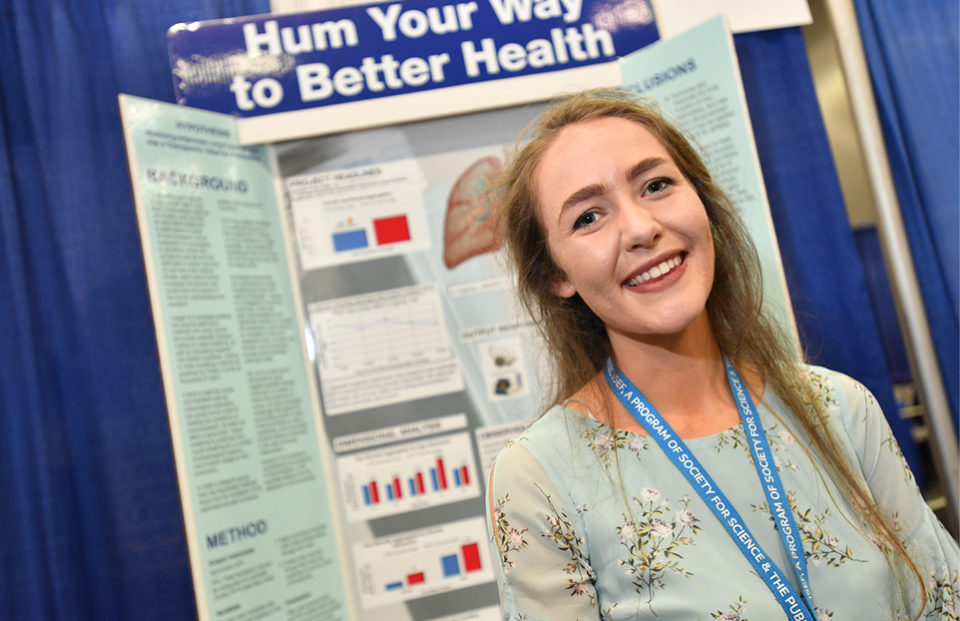Biomedical and Health Sciences
Code: BMED
Sponsored by Regeneron

This category focuses on studies specifically designed to address issues of human health and disease. It includes studies on the diagnosis, treatment, prevention or epidemiology of disease and other damage to the human body or mental systems. Includes studies of normal functioning and may investigate internal as well as external factors such as feedback mechanisms, stress or environmental impact on human health and disease.

Subcategories:
Cell, Organ, and Systems Physiology
Genetics and Molecular Biology of Disease
Immunology
Nutrition and Natural Products
Pathophysiology
Other
Cell, Organ, and Systems Physiology (PHY): These studies investigate mechanisms that are involved in maintaining health or when disrupted, cause disease. They could involve investigating such things as the role of cell signaling pathways both within the cell (intracellular) and/or between cells (extracellular). Alternatively, studies in this subcategory could investigate the maintenance of homeostasis at the organ or whole body level (e.g., hormonal control and regulation). These studies may also be in areas such as disease-related, stress-related, biochemical, mechanical, or physical changes at the tissue, organ, and /or cellular level.
Genetics and Molecular Biology of Disease (GEN): These studies investigate the genetic and molecular mechanisms involved in the regulatory pathways that maintain normal body and cellular function or if disturbed can lead to disease. Studies could include examining the activation and deactivation of genes (e.g., transcription factors or epigenetic regulation) or involve more classical genetic identification studies.
Immunology (IMM): These studies will investigate any aspects of the immune system that are involved in maintaining health or when altered lead to pathology. These studies can include new investigations of normal immune function (e.g., immune cell interactions and signaling), or they may study diseases caused by disorders in regulation of the immune system (e.g., immunodeficiency or autoimmunity). Alternatively the studies could investigate problems such as graft vs host or host versus graft disease that arise during the treatment of other diseases or conditions.
Nutrition and Natural Products (NTR): The study of food, nutrients and dietary need in humans, and the effects of food and nourishment on the body. These studies may include the effects of natural or supplemental nutrients and nutrition.
Pathophysiology (PAT): These studies will be focused on determining specific causes of disease and on physiological mechanisms responsible for disease development. Investigations in this category will examine changes in the normal physiological balance, or homeostasis that cause a reaction(s) within the body leading to disease.
Other (OTH): Studies that cannot be assigned to one of the above subcategories. If the project involves multiple subcategories, the principal subcategory should be chosen instead of Other.